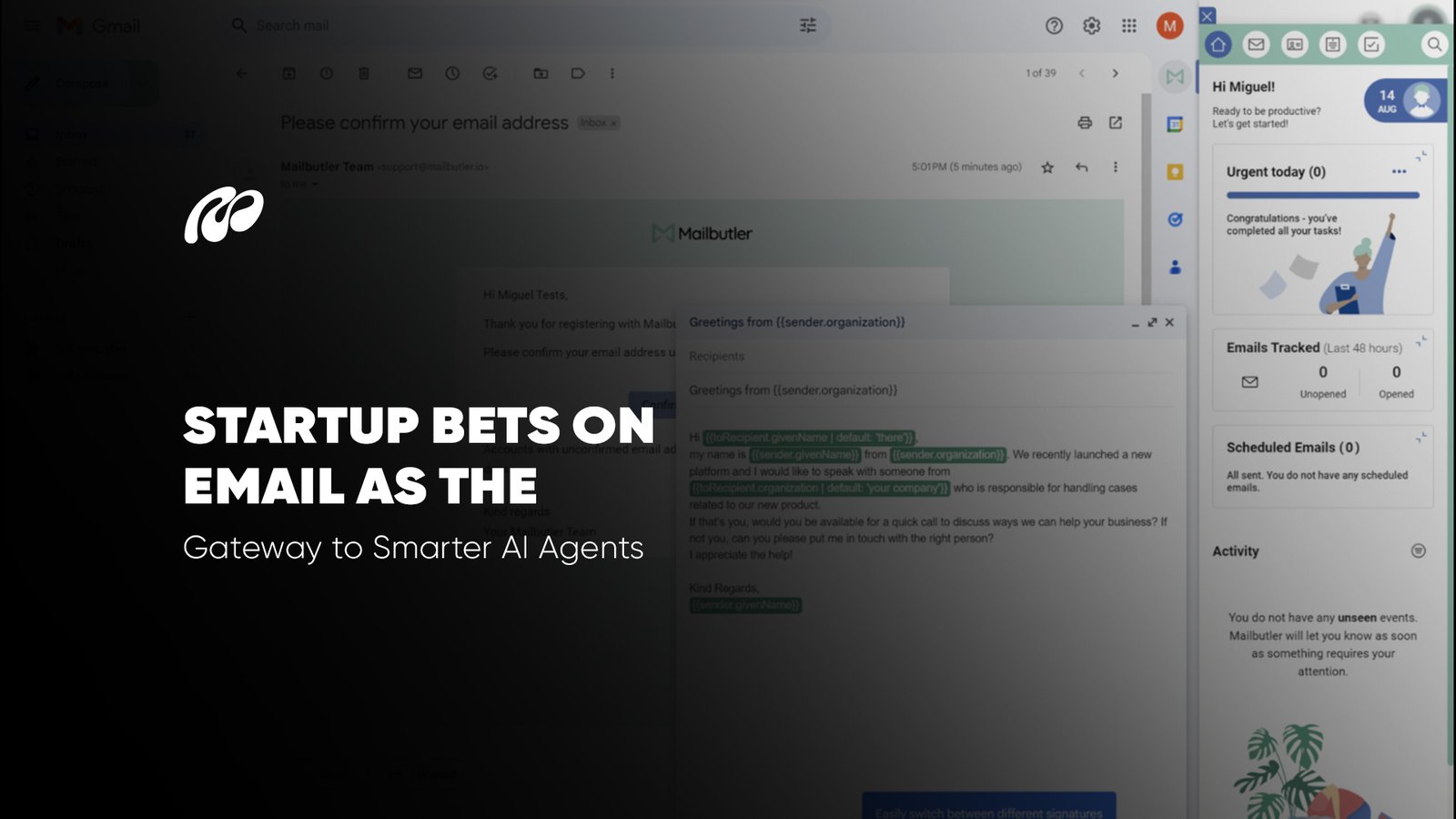Summary:
- Mixus, developed by a stealth startup founder, is redefining AI automation by using email as the central platform for intelligent agents.
- The system enables users to run rules on inbox workflows directly within Gmail and Outlook, streamlining tasks without the need for separate tools.
- Inspired by autogen design, Mixus deploys small, task-specific agents that operate within existing email environments to manage, respond to, and sort messages.
- Early adoption by industries like fashion and logistics, including businesses connected to RainbowShops, demonstrates the platform’s operational impact.
- The platform focuses on visibility and control, offering users full access to the logic and structure behind each automation task.
- Unlike many opaque AI systems, Mixus emphasizes transparency, giving power users the ability to customize and audit their workflows.
- By embedding AI within familiar platforms, Mixus positions itself as one of the most innovative startups to bridge usability and intelligence in enterprise automation.
In a tech landscape dominated by chatbots, search interfaces, and code-generation assistants, one stealth startup founder is placing their bets on a less flashy, but far more familiar medium: email. Rather than trying to replace your inbox, their AI platform, called Mixus, aims to utilize it as the gateway for orchestrating powerful, customizable agents that reside within the apps you already use.
This new approach may appear counterintuitive in an age of flashy AI demos and voice-based assistants, but it has a core advantage: email already has structure, logic, and metadata. That means less friction when it comes to applying automation and more room to build AI systems that actually understand context.
The best startup ideas often come from recognizing where users already spend time, and Mixus capitalizes on just that. Instead of requiring users to download new tools or learn new languages, the Mixus system runs directly inside Gmail, Outlook, and other inboxes, using rule-based parsing to read, act on, and even respond to messages. In essence, it gives power users the ability to run rules on inbox flows while scaling intelligent behavior across different email types, from receipts and meetings to contracts and customer support.
The company’s early adoption by users from e-commerce and logistics sectors, including professionals tied to operations at platforms like RainbowShops, shows just how deeply email remains embedded in critical business functions. Rather than replacing human effort, the system layers intelligence over the natural chaos of the inbox, helping users triage, delegate, and act faster.
And while many modern AI solutions focus on standalone models, Mixus is taking a cue from the multi-agent movement, gaining traction in tools like AutoGen. Here, Mixus uses a constellation of simple but task-specific agents that collaborate silently within your inbox. They sort messages, flag contracts, trigger workflows, or send reminders, all without requiring users to open a second app or break their natural routine.
In fact, this modularity and invisible orchestration of actions mirror what’s emerging across the broader AI ecosystem. Multi-agent coordination, previously viewed as overly academic, is now being used to power both simple interfaces and complex tools. This is evident in how tools like Glean AI and Blaze AI prioritize layered automation, as discussed in a breakdown on Mattrics News. Mixus seems to adopt this same philosophy: make agents smarter by making them smaller, context-specific, and embedded where they’re needed most.
The subtle brilliance behind Mixus lies in how it reframes AI, not as an interface, but as infrastructure. This thinking lines up with innovations across other agent-based models as well. For example, Perplexity AI has leaned on its structured QA format to build reliability in real-time research, while Google AI Studio shows how fine-tuning models inside existing tools is more effective than inventing new workflows. In this sense, Mixus’s focus on email as a foundation echoes a broader trend in AI: reduce friction by improving what’s already there, not reinventing it entirely.
What Else Can Mixus Do?
At its core, Mixus operates like a programmable assistant embedded in your inbox. But it’s more than just a bot. Users can write their own workflows in natural language or code, assigning specific actions to keywords, senders, or message types. Want to automatically draft a follow-up three days after receiving a vendor proposal? Mixus does that. Need to extract every PDF from messages labeled “Receipts” and upload them to Drive? Done.
The vision is to give users a framework where each autogen-inspired agent inside the system performs one action well, an echo of Unix-like principles adapted to AI. These agents aren’t large language models per se; they’re lightweight executors that can scale in complexity when orchestrated together. This allows for far more control than most AI agents in the market currently offer.
For example, in a business context, Mixus can route incoming legal documents to different team members based on topic. A document with language indicating contract renewals might be forwarded to procurement, while customer complaint forms can trigger a task in the CRM. These actions are programmable and auditable, two major benefits when compared to black-box automation.
Mixus also tracks performance and behavior, enabling real-time feedback loops that help improve accuracy over time. These metrics aren’t just used internally; power users can write rule sets that evolve based on input frequency, keyword shifts, and sender reputation. It’s essentially a run rules on inbox engine with machine learning inside.
As companies seek greater control over how AI impacts their workflows, Mixus offers something refreshing: transparency. Unlike many AI tools that hide logic behind models, Mixus surfaces the rules, triggers, and context so users know exactly what’s happening and why.
In that regard, the startup’s positioning alongside emerging agent-first systems like Snorkel AI shows just how far AI is moving toward modular, explainable systems that fit into familiar channels rather than requiring new ones.




